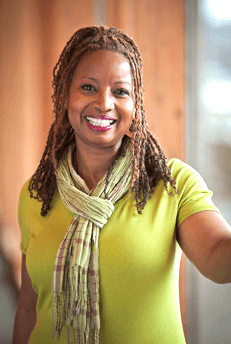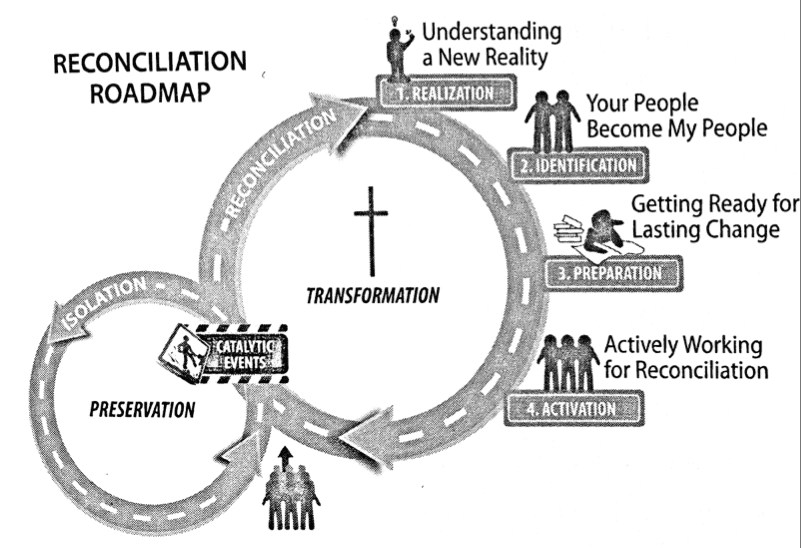 The post yesterday about Derwin Gray’s high-definitional leader can be complemented by a wider strategy seen in Brenda Salter McNeil’s Roadmap to Reconciliation: Moving Communities into Unity, Wholeness and Justice. Readers of my blog or The Kingdom Conspiracy know I get a bit nervous when social activism takes over ecclesial centeredness, but I find in both Derwin Gray and Brenda Salter McNeil a rugged commitment to the church and to the centrality of the gospel and the church in the process of reconciliation. We need the former (justice in the USA, the world) but not at the expense of the latter (the church as the fundamental location where the work of reconciliation begins.
The post yesterday about Derwin Gray’s high-definitional leader can be complemented by a wider strategy seen in Brenda Salter McNeil’s Roadmap to Reconciliation: Moving Communities into Unity, Wholeness and Justice. Readers of my blog or The Kingdom Conspiracy know I get a bit nervous when social activism takes over ecclesial centeredness, but I find in both Derwin Gray and Brenda Salter McNeil a rugged commitment to the church and to the centrality of the gospel and the church in the process of reconciliation. We need the former (justice in the USA, the world) but not at the expense of the latter (the church as the fundamental location where the work of reconciliation begins.
Brenda’s book is short and nothing less than a handbook — brief, accessible, illustrated, clear. A handbook that articulates stages in the process of reconciliation, and hence it is as useful for those seeking to embody reconciliation in a local church as it is for those who want to be more publicly active.
She begins by discussing her journey into defining reconciliation, wondering if there might be better terms, but finally lands on what we NT professors really like: a biblical term for an expansive biblical application.
Reconciliation is an ongoing spiritual process involving forgiveness, repentance and justice that restores broken relationships and systems to reflect God’s original intention for all creation to flourish (22).
She sees in this definition a process of reconciliation with God and with others, not just with others. But the Tower of Babel, the tower of separating from others in order to build our own kingdoms, remains a temptation:
Look at our churches, where groups of people who look just like each other come together every week.
Look at the way we demand that others speak our language and eat our food.
Look at the way we huddle together with those who share our religious, social and political viewpoints.
Look at the organizational systems and structures we build that explicitly or implicitly reward those who are like us and exclude, discriminate or disadvantage those who are not (26).
The solution to the Tower of Babel is Pentecost, a fresh wind of the Spirit that will lead us to be the one people of God, a mixup of races and ethnicities and economic statuses, but transcending and appreciating and celebrating our differences.
Here is her proposal, a process that moves from catalytic events into realization, identification, preparation, and activation.












